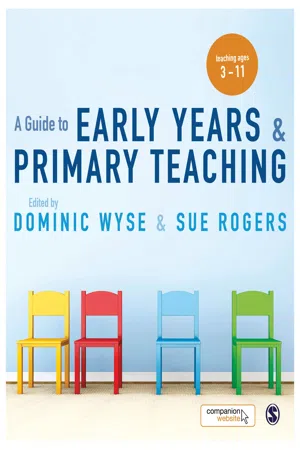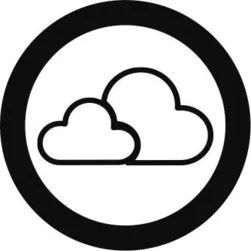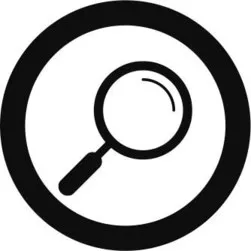
A Guide to Early Years and Primary Teaching
- 376 pages
- English
- ePUB (mobile friendly)
- Available on iOS & Android
A Guide to Early Years and Primary Teaching
About This Book
How do people become effective teachers?
Thisis the textbookstudents need to supportthem on this journey, no matter their training route or whether primary or early years in focus.
Through a unique pairing of academicresearch and teaching expertise, each chapter is collaboratively authored by an academicspecialist and an experienced practitioner to provide a realistic and practical view of teaching children from years 3 - 11. The book combines all the major topics, theories and researchstudents need to know, alongwith up-to-date policy and legislation. Inventive and practical learning aids and carefully crafted online resources will helpreaders to:
Understand: helpful learning aims at the beginning and summaries at the end of every chapter guide students through each topic
Apply: Spotlight on Practice features highlight real teaching examples, Putting it into Practice features provide advice on how key concepts can be employed in real life whilst classroom activities on the website provide further ideas for teaching
Reflect on key concepts, as well as your own practice and values, through the refection points and author podcasts on the website outlining key issues to stimulate critical thinking
Go further with informative annotated further reading at the end of every chapter, links to relevant websites integrated throughout, and carefully selected SAGE journal articles freely available on the website
This is an essentialtextbookfor use across all your primary and early years teaching courses - whether students aretraining to be lower/upper primary school teachers or early years practitioners, including those on undergraduate or postgraduate teacher training courses and employment-based routes.
Frequently asked questions
Information
1 Becoming A Teacher
Learning Aims
- reflect on your own and other people’s expectations of a beginning teacher
- consider different views about what makes for a ‘good’ teacher
- develop an understanding of the influence of those who support you in school, particularly your mentor.
Different Expectations of a Beginning Teacher
reflection point

- What were your reasons for wanting to become a teacher?
- What are your feelings about becoming a teacher?
spotlight on practice

Different expectations of a beginning teacher
The school leader’s expectations
The expectations of Sam’s mentor
The expectations of a parent of a primary 3 pupil
reflection point

- what makes for good teaching and learning
- what knowledge matters most
- models of teacher education, and the nature and level of support that beginning teachers should receive
- how ready beginning teachers are to teach when they arrive in school and what they are expected to do at the start of their placement or career.
Table of contents
- Cover
- Half Title
- Publisher Note
- Title Page
- Copyright Page
- Contents
- Editor Biographies
- Contributor Biographies
- Acknowledgements
- Guided Tour
- How to Use the Companion Website
- Introduction
- 1 Becoming A Teacher
- 2 School and Society
- 3 Current Developments in Education
- 4 Teaching and Learning
- 5 Child Development
- 6 Planning
- 7 Teaching Strategies
- 8 The Curriculum
- 9 Assessment and Learning
- 10 Diversity and Inclusion
- 11 Partnership Working
- 12 Reflective Practice
- 13 Behaviour
- 14 New Technology
- 15 Your First Job
- 16 Legal Issues
- 17 Research and Teaching
- Index